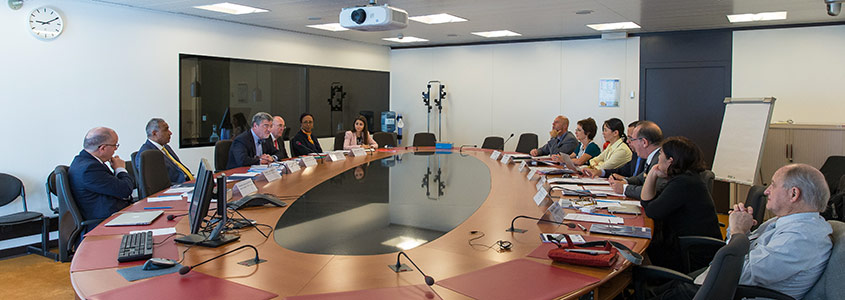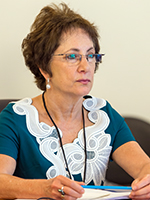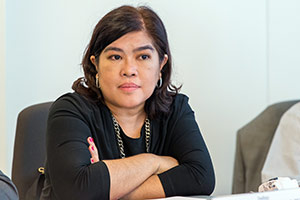Judges and WIPO Academy to Develop Judicial IP Training Course
July 25, 2017
The WIPO Academy invited seven renowned judges representing different regions and legal traditions within the field of intellectual property (IP) to Geneva from July 17 to 19, to discuss the development of a general Distance Learning (DL) course on IP for the judiciary.
Using their IP experiences, the panel of expert judges discussed the outline and content of the DL course for the judiciary. They focused on IP topics that are particularly relevant to judges in developing countries, and cases that would be most useful to judges when applying their knowledge to court rulings. The Judges also discussed effective models and learning aids for training the judiciary, as well as mechanisms to ensure the sustainability of training activities.

Course content
The introductory IP course for judges, which is built on the existing General Course on Intellectual Property (DL-101), will provide a tailored overview of IP with practical considerations for judges by covering an extensive range of IP topics.
Why do judges need IP training?

“The appreciation of IP has certainly grown recently. IP is more popular and this has given rise to more populist approaches, and there is a given danger when populist approaches affect decision making at either judicial or governmental levels. This is a major issue because it often arises without a full appreciation of what IP is,” says Judge Bennett.
The DL course is one of the key elements of the project for Cooperation on Development and Intellectual Property Rights Education and Professional Training with Judicial Training Institutions in Developing and Least-Developed Countries (LDCs), which was approved by the Committee on Development and Intellectual Property (CDIP) in April 2016.
Unlocking the IP potential of developing countries

“It’s in the interest of developing countries to protect IP,” says Judge Modesto San-Pedro, “so more developing countries are recognizing the importance of IP and pushing for it.”
She adds, “The basics of IP should be given importance; all developing countries should have at least a starter course, which is why I am pleased to be part of this project.”
As part of the Academy’s mandate of capacity building, particularly for developing countries, LDCs and countries in transition, the general course on IP for the judiciary will be exclusively open to judges in 2018.
The generic course will also be customized with the help of national consultants, to meet the needs and priorities of the four pilot countries of the Judicial Training Institutions Project: